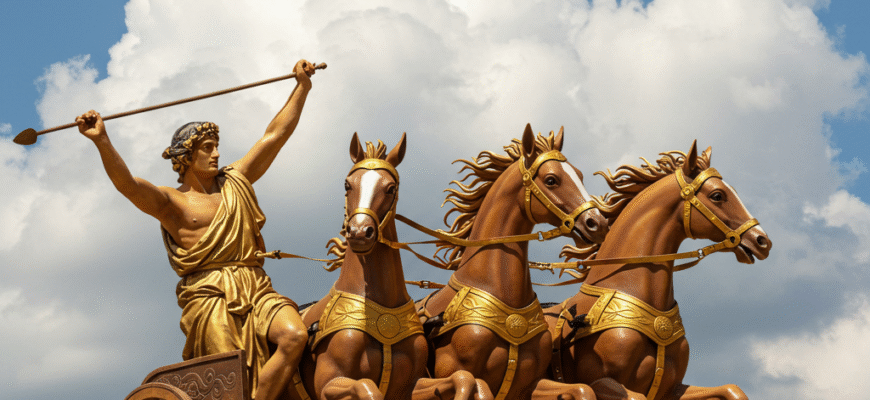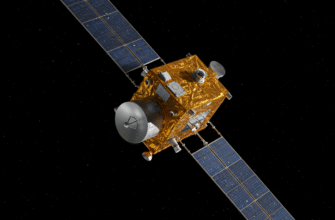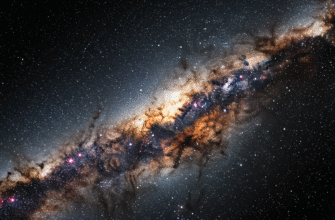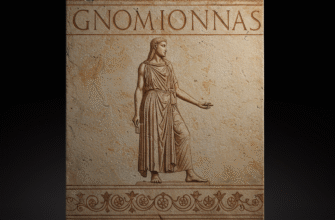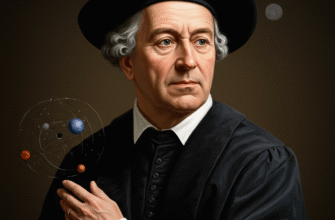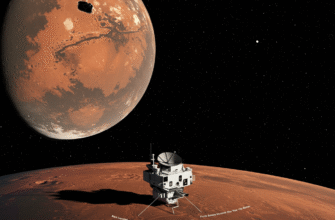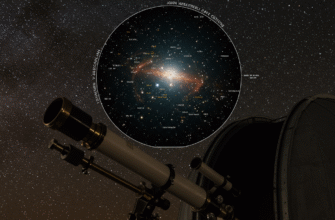Phaethon, a name that echoes through the ages, not with the triumphant ring of heroism, but with the sharp crackle of disaster. His story is a stark reminder, etched in the celestial canvas, of ambition untempered by wisdom, a tale of a youth who dared to reach for the sun and, in doing so, nearly unmade the world. He was a young man, vibrant and full of the fire of his supposed lineage, for his mother, the Oceanid nymph Clymene, had always told him his father was none other than Helios, the mighty Titan who steered the chariot of the sun across the sky each day. Yet, whispers and taunts from his peers planted seeds of doubt. Was he truly the son of a god, or was it merely a mother’s comforting tale? This gnawing uncertainty set Phaethon on a fateful path.
The Quest for Paternal Proof
Driven by the need to silence the doubters and affirm his own identity, Phaethon confronted Clymene. She, seeing the turmoil in her son, reaffirmed his divine parentage and, to provide undeniable proof, urged him to journey to the radiant palace of Helios himself. “Go to the lands where the sun rises,” she advised, “There you will find your father. He will acknowledge you.” With this maternal blessing, and a heart mixed with trepidation and fierce hope, Phaethon embarked on his eastward trek. The journey was arduous, leading him through lands unknown, but the image of his father’s blazing glory spurred him onward.
Finally, after what seemed an eternity, he reached the fabled palace of the Sun, a structure so magnificent it defied mortal description. Forged by Hephaestus, it gleamed with gold, glowed with pyrope, and was adorned with ivory and polished silver, its gates intricately carved with scenes of the cosmos – the earth, the sea, the star-studded heavens, and all the creatures therein. Even from a distance, the light emanating from it was almost too brilliant to bear.
An Oath Sealed by Starlight
Stepping into the throne room, Phaethon found Helios, his face too radiant to look upon directly, seated on a throne of emeralds. The god, recognizing the boy as his own, greeted him with paternal warmth, his voice like the gentle warmth of dawn. “My son,” Helios proclaimed, his heart swelling with pride and perhaps a touch of guilt for his long absence from the boy’s life. “Why have you undertaken such a perilous journey?”
Phaethon, emboldened, laid bare his anxieties, the taunts he had endured, and his desperate need for a sign, an undeniable token of his divine heritage that he could show the world. Touched by his son’s plight and eager to prove his love, Helios made a solemn and, as it turned out, catastrophic vow. “By the River Styx,” he swore, an oath unbreakable even by the gods, “ask anything of me, and it shall be yours. I will grant any wish to prove you are my son.” The air crackled with the power of the oath, a promise that hung heavy with impending doom, though neither father nor son fully grasped it at that moment.
The oath sworn by the River Styx was the most sacred and binding oath a god could make in Greek mythology. Breaking such an oath would bring severe repercussions, even for deities of Helios’s stature. This unbreakable promise set the stage for the tragedy, as Helios was bound to fulfill Phaethon’s wish, no matter how disastrous. Such oaths often feature in myths as turning points leading to inevitable consequences.
The Audacious Request
It was here that Phaethon’s youthful impetuosity, his burning desire to emulate his father and achieve something spectacular, overshadowed all caution. He did not ask for gold, nor power, nor a kingdom. Instead, his eyes fixed on the magnificent, fiery chariot parked nearby, he uttered the wish that would seal his fate: “Father,” he declared, his voice trembling with excitement, “for one day, just one, let me drive your sun chariot across the sky!”
A shadow passed over Helios’s radiant face. The god was aghast. Of all the boons Phaethon could have requested, he had chosen the one fraught with the most peril, a task even other gods, including Zeus himself, would not dare attempt. The sun god immediately regretted his rash oath, the words tasting like ash in his mouth.
Helios’s Desperate Warnings
Helios pleaded with his son, his voice filled with a desperate urgency. He painted a terrifying picture of the task ahead. “My son, this is a man’s ambition, not a boy’s! The horses are no mere beasts; they are fire-breathing titans – Pyrois, Aeos, Aethon, and Phlegon – their lungs filled with celestial flame, their spirits wild and untamable by any hand but mine. They will sense your inexperience, your lack of strength.”
He described the arduous path the chariot must take: the steep ascent at dawn, where the horses are fresh and almost uncontrollable; the dizzying heights of midday, where even he felt a sense of vertigo looking down upon the earth; and the precipitous descent in the evening, requiring immense skill to guide the chariot safely into the western ocean. “The path itself is fraught with terrors,” Helios continued, “You will pass through the clutches of fearsome constellations – the horns of the Bull, the claws of the Crab, the venomous Scorpion, and the roaring Lion. Are you prepared to face such horrors? Even I navigate this course with caution.” He begged Phaethon to choose another gift, anything else, but the boy, blinded by pride and the allure of glory, remained resolute. His heart was set, his mind unyielding. He saw only the imagined triumph, not the very real danger.
A Chariot Out of Control: The Sky Ablaze
With a heavy heart, bound by his Stygian oath, Helios reluctantly led Phaethon to the golden chariot. He anointed his son’s face with a sacred balm to protect him from the intense heat and placed the sun’s radiant crown upon his head, offering last-minute advice on handling the reins and controlling the powerful steeds. “Do not whip them too hard, nor hold the reins too loosely. Keep to the middle path, avoid going too high or too low, for either extreme spells disaster for the earth.”
As Dawn opened her crimson gates, Phaethon, filled with a mixture of exhilaration and apprehension, leaped into the chariot. The four winged horses, sensing an unfamiliar and lighter hand on the reins, shot forth like comets. Almost immediately, Phaethon realized his father’s warnings were no exaggerations. The chariot, unburdened by Helios’s usual weight and authority, careened wildly. The horses, unaccustomed to the weaker grip, ignored his commands and veered off the well-trodden path of the sun.
Panic seized Phaethon. He pulled frantically on the reins, but his strength was no match for the celestial beasts. They plunged too close to the Earth, and the consequences were cataclysmic. The intense heat scorched the land. Mountains smoked, forests burst into flame, rivers boiled and evaporated, and vast fertile plains were transformed into barren deserts. It is said that this event turned the skin of the Ethiopians black and created the Sahara desert. The seas themselves began to shrink, their waters steaming. The Nymphs of springs and rivers lamented as their homes dried up. The great cities of men burned, and the world cried out in agony.
Then, veering wildly, the chariot soared too high, threatening to set the heavens themselves on fire. The constellations recoiled, and even the icy Pole began to thaw. The moon, astonished, watched her brother’s chariot run amok. The very order of the cosmos was unraveling.
Earth’s Desperate Cry
Gaia, the Earth Mother, scorched and suffering, could bear the torment no longer. Her voice, parched and cracking, rose to Olympus, pleading with Zeus, the king of the gods. “Greatest of gods,” she implored, “if this is your will, then let me perish by your lightning, but if I am to be saved, then save me from this fiery doom! Look, the poles are smoking! If the fire damages them, your own palace will collapse. Atlas himself struggles to bear the burning weight of the sky. If sea, land, and the realms of heaven perish, we are hurled back into ancient Chaos.” Her plea was a testament to the sheer scale of the devastation Phaethon’s ride had unleashed.
Zeus’s Thundering Intervention
Zeus, hearing Gaia’s plea and witnessing the widespread devastation from his Olympian throne, knew he had to act swiftly to prevent the utter destruction of the universe. There was no time for deliberation. With a heavy heart, for he knew Helios would grieve, but with the fate of all existence at stake, Zeus gathered the clouds, mustered a mighty thunderbolt, and hurled it with unerring aim at the runaway chariot and its hapless driver.
The lightning bolt struck Phaethon. His hair, set ablaze by the divine fire, streamed behind him like a falling star. He tumbled from the chariot, a burning brand, and plunged headlong into the waters of the Eridanus River (often identified with the Po River in Italy). The sun chariot, now driverless, broke apart, its fiery fragments scattering, and the horses, finally free, galloped back to their stables in the east, leaving the world in a stunned, smoky twilight.
The myth of Phaethon is primarily chronicled in Ovid’s “Metamorphoses” (Book II). While other ancient writers mention aspects of the tale, Ovid provides the most detailed and dramatic narrative. The story has been interpreted in various ways, from a cautionary tale about hubris to an etiological myth explaining phenomena like deserts, the dark skin of some peoples, and the origin of amber.
A World in Mourning
The death of Phaethon brought profound sorrow. His sisters, the Heliades, gathered on the banks of the Eridanus, weeping inconsolably for their lost brother. Their grief was so profound that the gods, in pity, transformed them into poplar trees. Their tears, falling into the river, hardened into drops of amber, forever preserving their sorrow. Cycnus, a king of Liguria and a close friend or relative of Phaethon, also mourned deeply. He wandered the riverbanks, searching for Phaethon’s remains, his lamentations so mournful that Apollo (or sometimes Zeus) transformed him into a swan, forever to glide over the waters, his neck craned as if still searching, his song a mournful dirge.
Helios himself was overcome with grief. He refused to drive the sun chariot, and for an entire day, the world was plunged into darkness, a stark testament to the loss and the disruption of cosmic order. It was only after the pleas of the other gods, and perhaps the realization that the world could not survive without his light, that Helios, his heart still heavy, reluctantly resumed his daily task, the memory of his son’s fiery end a perpetual shadow on his divine existence.
Echoes of the Fall: Lessons from a Blazing Tragedy
Phaethon’s fall is more than just a story of a celestial joyride gone wrong. It’s a powerful allegory, rich with enduring themes. At its core, it’s a stark warning against hubris – the excessive pride and ambition that leads mortals to overstep their boundaries and challenge the divine order. Phaethon’s refusal to heed his father’s wise counsel, his belief that he could control forces far beyond his capability, exemplifies this fatal flaw.
The myth also explores the dangerous chasm between aspiration and ability. While ambition can be a driving force for achievement, unchecked by realism and self-awareness, it can lead to ruin. Phaethon’s desire to prove himself, to gain the recognition he craved, was understandable, yet his chosen method was disastrously ill-suited to his skills. It speaks to the timeless struggle of youth, eager to make a mark on the world but sometimes lacking the experience and judgment to navigate its complexities. It is a narrative about the consequences of:
- Ignoring parental guidance.
- The desire for fame at any cost.
- Underestimating powerful forces.
Furthermore, the story can be seen as an early environmental fable, illustrating the catastrophic consequences of disrupting the natural balance. The scorching of the earth and the chaos in the heavens serve as a vivid depiction of ecological disaster stemming from a single, reckless act. It underscores the interconnectedness of the cosmos and the fragility of the world when its fundamental laws are violated. The myth of Phaethon continues to resonate, a fiery emblem of the perils of unbridled arrogance and a poignant reminder of the delicate balance that governs both the human heart and the vast universe.

